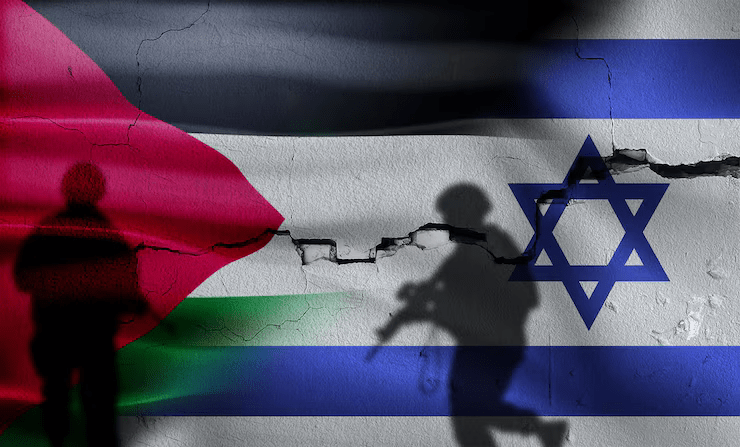Israel Iran Conflict 2025 – Latest Updates and Global Impact

The Israel Iran conflict 2025 has rapidly escalated into one of the most significant geopolitical flashpoints of the decade. With military confrontations, cyber warfare, and international responses shaping daily headlines, this ongoing conflict has implications far beyond the Middle East.
This article brings you the latest updates on the Israel Iran war, the causes behind the renewed tension, military operations including Israel airstrike on Iran, and Iran retaliation against Israel, as well as the wider consequences for regional and global stability.
Table of Contents
- Overview of the 2025 Israel-Iran Conflict
- Timeline of Key Events
- Israel Airstrikes on Iran: Military Operations
- Iran’s Retaliation: Escalation in the Gulf
- Impact on Middle East Tensions
- Global Reactions and Diplomacy
- What’s Next? Scenarios and Outlook
Overview of the 2025 Israel-Iran Conflict
The conflict between Israel and Iran has intensified over years of proxy tensions, nuclear developments, and regional hostilities. In 2025, the confrontation became direct, following a series of suspected sabotage events and the breakdown of diplomatic backchannels.
Root Causes:
- Iran’s resumed uranium enrichment efforts
- Accusations of Iranian support for Hezbollah and other armed groups near Israeli borders
- Israel’s preemptive doctrine against nuclear-armed adversaries
According to a recent Al Jazeera report, the current crisis erupted when Israeli fighter jets struck a suspected nuclear site in central Iran in late May 2025.
Timeline of Key Events
- May 27, 2025: Israeli aircraft bomb an Iranian research facility in Isfahan.
- May 29, 2025: Iran confirms casualties and threatens retaliation.
- June 2, 2025: Iranian ballistic missiles strike Israeli military installations in the Negev Desert.
- June 10, 2025: Cyberattacks reported on Israel’s water and power systems.
- June 15, 2025: US and EU call for immediate ceasefire and initiate emergency UN Security Council meetings.
For ongoing updates, see the BBC Middle East news section.
Israel Airstrikes on Iran: Military Operations
The Israel airstrike on Iran targeted what Tel Aviv claims were active nuclear development and drone manufacturing facilities.
Israeli Military Objectives:
- Disrupt Iran’s nuclear program
- Eliminate air-defense threats
- Signal deterrence to proxy groups
F-35I stealth jets, drone swarms, and cruise missiles were used, marking a significant escalation in operational scope.
The Times of Israel reports the IDF is preparing for further cross-border escalations and possibly long-range retaliation.
Iran Retaliation Against Israel: Direct Strikes
Iran’s response has included both conventional and asymmetric warfare:
- Launching ballistic and cruise missiles at Israeli military and economic centers
- Arming Hezbollah and other militias for coordinated attacks
- Alleged cyber disruptions on Israeli infrastructure
According to Reuters, Tehran warned of a prolonged engagement if Israeli attacks continue.
Impact on Middle East Tensions
The broader Middle East tensions have flared as a result:
- Lebanon and Syria are on high alert
- Gulf nations like Saudi Arabia and UAE have boosted military readiness
- Oil prices have spiked by 12% since the conflict began
Regional power dynamics are shifting as countries reassess alliances, particularly given Iran’s partnerships with non-state actors.
Global Reactions and Diplomacy
The international community remains deeply divided.
United States:
Supports Israel’s right to self-defense but urges de-escalation.
European Union:
Pushing for an immediate ceasefire and reopening of nuclear talks.
Russia and China:
Criticize Israel’s actions and call for respect for Iran’s sovereignty.
UN-led efforts for a diplomatic resolution are currently stalled, with emergency meetings yielding little actionable progress.
What’s Next? Scenarios and Outlook
While a full-scale regional war is not inevitable, the situation remains volatile. Possible scenarios include:
- Escalation into Lebanon or Iraq via proxy groups
- Cyber war escalation affecting global infrastructure
- Involvement of NATO forces if civilian casualties rise dramatically
According to analysts at Foreign Policy, backchannel diplomacy is underway between Turkey, Qatar, and European states to mediate a ceasefire agreement.
Conclusion
The Israel Iran conflict 2025 represents a dangerous flashpoint with unpredictable consequences. From airstrikes to retaliatory missile attacks, and increasing Middle East tensions, the world watches with growing concern.
Diplomacy remains the only viable path to de-escalation. Until then, the region and the world must brace for the possibility of prolonged instability.
You can also read about: Camping Gear Security and How You Can Make Sure You are Always Protected

